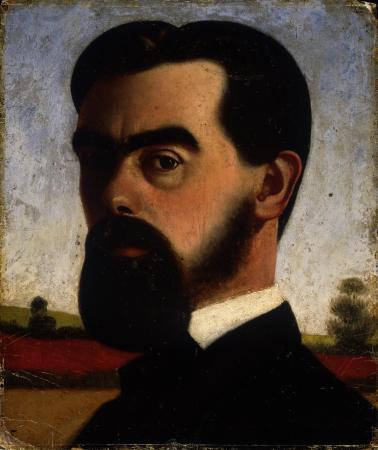Samuel Butler Quotes
Source: Erewhon (1872), Ch. 26
“[Ideas] are like shadows — substantial enough until we try to grasp them.”
Ideas
The Note-Books of Samuel Butler (1912), Part VII - On the Making of Music, Pictures, and Books
Thought and Word, i
The Note-Books of Samuel Butler (1912), Part VII - On the Making of Music, Pictures, and Books
Heaven and Hell
The Note-Books of Samuel Butler (1912), Part II - Elementary Morality
Poetry
The Note-Books of Samuel Butler (1912), Part XII - The Enfant Terrible of Literature
Darwin Among the Machines
The Note-Books of Samuel Butler (1912), Part III - The Germs of Erewhon and of Life and Habit
"Rebelliousness", Note-Books (1912)
Improvement in Art
The Note-Books of Samuel Butler (1912), Part IX - A Painter's Views on Painting
Italians and Englishmen
The Note-Books of Samuel Butler (1912), Part XIII - Unprofessional Sermons
Great Art and Sham Art
The Note-Books of Samuel Butler (1912), Part IX - A Painter's Views on Painting
“He is greatest who is most often in men’s good thoughts.”
Greatness
The Note-Books of Samuel Butler (1912), Part XIV - Higgledy-Piggledy
Eating Grapes Downwards
The Note-Books of Samuel Butler (1912), Part VII - On the Making of Music, Pictures, and Books
“The dons are too busy educating the young men to be able to teach them anything.”
Oxford and Cambridge
The Note-Books of Samuel Butler (1912), Part XIV - Higgledy-Piggledy
Source: The Way of All Flesh (1903), Ch. 23; this is one of the passages excised from <cite>The Way of All Flesh</cite> when it was first published in 1903, after Butler's death, by his literary executor, R. Streatfeild. This first edition of <cite>The Way of All Flesh</cite> is widely available in plain text on the internet, but readers of facsimiles of the first edition should be aware that Streatfeild significantly altered and edited Butler's text, "regularizing" the punctuation and removing most of Butler's most trenchant criticism of Victorian society and conventional pieties. Butler's full manuscript, entitled <cite>Ernest Pontifex, or The Way of All Flesh</cite>, was edited and issued by Daniel F. Howard in 1965. It is from this edition that this quote is derived; it was excised by Streatfeild in the first edition.
Lucky and Unlucky
The Note-Books of Samuel Butler (1912), Part XIV - Higgledy-Piggledy
“An empty house is like a stray dog or a body from which life has departed.”
Source: The Way of All Flesh (1903), Ch. 72
Thought and Word, iv
The Note-Books of Samuel Butler (1912), Part VII - On the Making of Music, Pictures, and Books
Inaccuracy
The Note-Books of Samuel Butler (1912), Part XXII - Reconciliation
Morality
The Note-Books of Samuel Butler (1912), Part II - Elementary Morality
Source: Erewhon (1872), Ch. 12
Ramblings In Cheapside (1890)
“Man is the only animal that laughs and has a state legislature.”
As quoted in 1,911 Best Things Anybody Ever Said (1988) by Robert Byrne
Ramblings In Cheapside (1890)
Source: Erewhon (1872), Ch. 15
First lines of Butler's translation of The Iliad (1898)
Mental and Physical Pabulum
The Note-Books of Samuel Butler (1912), Part VI - Mind and Matter
Antithesis
The Note-Books of Samuel Butler (1912), Part IV - Memory and Design
On Knowing what Gives us Pleasure, i
The Note-Books of Samuel Butler (1912), Part XIII - Unprofessional Sermons
Fore-knowledge of Death
The Note-Books of Samuel Butler (1912), Part XXIII - Death
Argument http://books.google.com/books?id=JHguFYrTEQ0C&q="We+are+not+won+by+arguments+that+we+can+analyse+but+by+tone+and+temper+by+the+manner+which+is+the+man+himself"&pg=PA329#v=onepage
The Note-Books of Samuel Butler (1912), Part XX - First Principles
Source: Erewhon (1872), Ch. 3
The Odyssey of Homer (1900), opening lines
“The limits of the body seem well defined enough as definitions go, but definitions seldom go far.”
Ramblings In Cheapside (1890)
Source: Erewhon (1872), Ch. 22
Ignorance of Death
The Note-Books of Samuel Butler (1912), Part XXIII - Death
Source: Erewhon (1872), Ch. 20
“Men are seldom more commonplace than on supreme occasions.”
Supreme Occasions
The Note-Books of Samuel Butler (1912), Part XVII - Material for a Projected Sequel to Alps and Sanctuaries
Source: Erewhon (1872), Ch. 4
The Ancient Mariner
The Note-Books of Samuel Butler (1912), Part XV - Titles and Subjects
Source: The Way of All Flesh (1903), Ch. 24
“It does not matter much what a man hates provided he hates something.”
Hating
The Note-Books of Samuel Butler (1912), Part XIV - Higgledy-Piggledy
Source: Erewhon (1872), Ch. 23
Source: The Way of All Flesh (1903), Ch. 26
Genius, iv
The Note-Books of Samuel Butler (1912), Part XI - Cash and Credit
